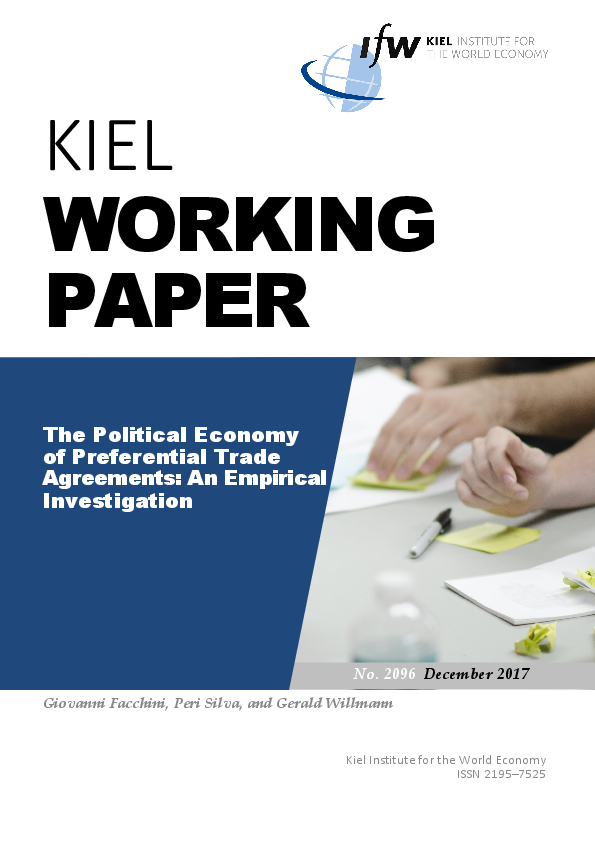Working Paper
The Political Economy of Preferential Trade Agreements: An Empirical Investigation
Authors
Publication Date
JEL Classification
Key Words
In this paper, we develop a political economy model to study the decision of representative democracies to join a preferential trading agreement (PTA), distinguishing between free trade areas (FTA) and customs unions (CU). Our theoretical analysis suggests that income inequality and bilateral trade imbalances are important factors in determining the formation of PTAs, while differences in production structure among prospective member countries determine whether a CU or an FTA will emerge in equilibrium. Using a sample of 136 countries over the period 1960-2005, our empirical analysis lends strong support to these predictions: Income inequality and trade imbalances both reduce the likelihood of PTA formation, while geographical specialization increases the conditional probability of an FTA (over a CU).







